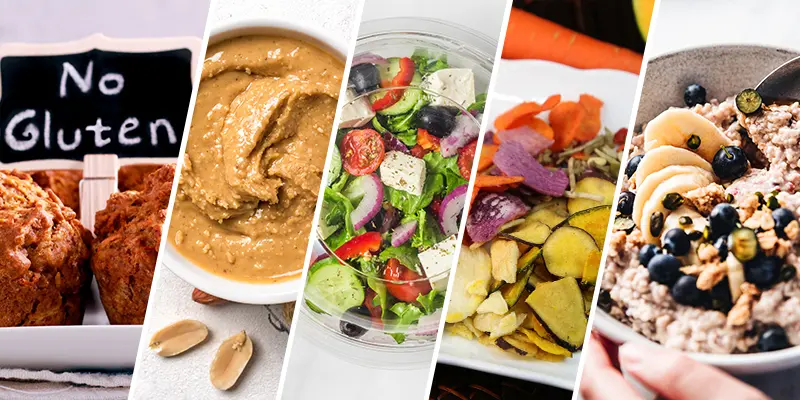
Perhaps the biggest mistake emotional overeaters make is failing to manage their fluctuating emotions as carefully as they do their careers or physical health. Luckily, there’s a shorthand you can rely on whenever you’re seized with an urge to overeat.
Just remember to HALT: Don’t get too hungry, angry, lonely, or tired.
This simple and powerful acronym is used in addiction recovery centers the world over, but HALT is not just for addicts. It’s for anyone looking to eat less, and more healthfully, by eating more consciously.
One simple and powerful acronym—HALT—can help anyone eat less, and more healthfully. Just don’t get too hungry, angry, lonely, or tired.It’s a fail-safe remedy for helping navigate the constant flux of life. New babies, job opportunities and losses, accidents and sickness, and our ever-changing hormonal states send our emotions into overdrive on a regular basis.
HALT: DON’T GET TOO HUNGRY
Let’s start with the danger of becoming too hungry. Blood sugar levels drop when you go too long between meals or snacks. In response, your levels of anger and irritation rise in lockstep.
Lower blood sugar means your brain is starving and, consequently, exhibits lowered overall activity. This depleted state opens the door to impulsive behavior and cravings. The remedy here is simple: bring healthy snacks with you and don’t go long between meals. Start your day with a healthy breakfast and then prepare your snacks ahead of time. After your nutritional breakfast, eat modest-sized meals throughout the day. As a result, you’ll be less tempted to slake your hunger with unhealthy choices such as desserts and sugary drinks.
With planning you have the ability to stabilize your blood sugar and, as you do, you won’t be thrown by emotional overeating.
To help even out your blood sugar and tamp down cravings, evidence suggests that taking the supplements chromium and alpha-lipoic acid also can help.
HALT: DON’T GET TOO ANGRY
Excess anger also can send you to the fridge or through the drive-in. When hit with a flash of it, see if you can exit stage left to walk around the block or hit the gym, tennis court, or yoga class. Moving our bodies is one of the most effective means of processing this high-handed and difficult emotion.
Other strategies include writing or typing out the reasons you are angry on paper or on your computer. Externalizing feelings of rage allows us to get a better view of them. When they are not rampaging around our heads, unexpressed and unexamined, we can see them with some helpful detachment.
“I hate my job and I’m going to quit.”
With these words on paper, we can take a moment to ask ourselves the question, “Is this true?” Maybe, after some reflection, we only hate our jobs occasionally and don’t really want to resign.
Other helpful actions include meditation—often just a minute or two will do the trick—and deep breathing. Taking air into your lungs, slowly, for about 10 deep breaths following a provocation often will alter your state.
All these actions enable you to process your anger, instead of letting it have its way with you. Afterward, you’ll be better able to find a calm and direct manner of expressing yourself. Anger requires responsible expression. It should not be left to fester, which will only lead to more problems.
HALT: DON’T GET TOO LONELY.
There’s never been a better time to build and bolster your social life with networks of supportive people. Online Meetup groups allow us to readily connect with people with shared interests, ranging from hiking to cooking to reading and an endless array of activities. Many virtual addiction recovery meetings convene on almost an hourly basis, as often as 24 hours a day, online and over phone lines. In-person meetings gather daily and in the evenings. Planning ahead to see friends and loved ones allows you to ensure you rarely face a solitary upcoming weekend, week, or month.
This kind of preparation can help sustain you in ways that sudden food binges never will. But failing to see other people, in whichever way you prefer, can leave you prey to the temptation to fill that social void with still-more-empty calories.
Plan ahead, to be both social and slim.
HALT: DON’T GET TOO TIRED
Running ourselves ragged almost seems to be in vogue. If you find yourself telling everyone how busy you are, take note and consider slowing down.
Not sleeping enough wears out the emotional centers of the brain, leaving them 60% more reactive to negative stimuli, according to one 2007 study. The less sleep you have the less capable you are of gracefully handling stressful stimuli.
As fatigue sets in, we steadily lose our ability to make good decisions. Judges are more likely to grant parole to prisoners earlier in the day, before lunchtime, after which point fatigue sets in, one study found. The risk of setting someone free on parole appears too high after judges lose their early-morning capacity for discernment, causing them to default to the safest societal choice: to deny parole.
As the judges may or may not know, poor sleep inhibits brain function, leading to poor decision-making. It also leads people to eat more unhealthy carbohydrates.
MAKE NOT ONE, BUT FOUR SEPARATE HALT PLANS
At Amen Clinics, we urge our patients to write out four separate plans, titled, “My don’t get too hungry plan,” “My don’t get too angry plan,” etc.
For each, make a list of what you will do to keep yourself safe from each of these unhealthy states. Drinking warm almond milk with stevia before bed to aid sleep, while listening to soothing music might go on one list. Grabbing an easy bag of healthy snacks—such as apples and nuts—might go on another. The lists need not be long. Write down about 5 strategies for each. Put each list in notes mode or into a file folder on your mobile phone and when you feel your hunger, anger, loneliness, or fatigue rising, refer to each.
Take action to address your emotions first and your healthy eating is more likely to take care of itself.
Emotional issues, anger, sleep disorders, and other mental health issues can’t wait. At Amen Clinics, we’re here for you. We offer in-clinic brain scanning and appointments, as well as mental telehealth, clinical evaluations, and therapy for adults, teens, children, and couples. Find out more by speaking to a specialist today at 888-288-9834 or visit our contact page here.





Thank you for your clear explanation of this complex issue. And the helpful delivery of a plan to personally rescue myself from unhealthy eating patterns which I see repeating themselves in my life. I feel empowered to create my plan and implement using these tools.
Comment by Ann — April 21, 2023 @ 3:59 AM
Great ways to control eating!
Comment by Jan Andrews — May 10, 2023 @ 8:23 PM